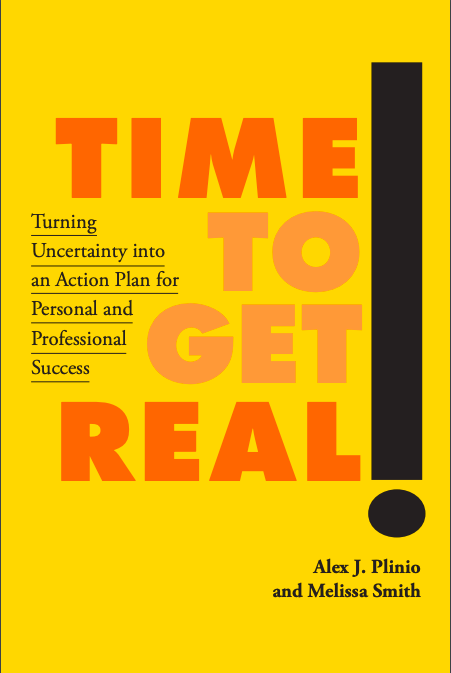When teaching or coaching individuals on life and career planning, we ask that they write a statement that describes their life’s purpose or mission. For most people, this is not an easy exercise. It requires thinking about all the dimensions of your life, your relationships, your work, your personal motivations, and in some sense your spiritual or humanistic beliefs. A personal mission statement offers clarity and gives you a sense of purpose. It helps define who you are and how you will live. Frankly, it’s much easier to write a description of a job you want than to answer the question – why am I here?
A number of years ago Alex Plinio, author of Time To Get Real! had the opportunity to work with Frances Hesselbein, the CEO of the Girl Scouts of America, who had been named as the best executive leader in the United States in business, nonprofit, or government fields. She talked about the need that people have for a hope beyond the change experienced in their daily lives. She said that the need was for an anchor, a purpose, which provided meaning for their life and their work. We believe everyone needs this, but few people take the time to think about it and to provide that meaning for themselves.
A personal mission statement offers clarity and gives you a sense of purpose. It helps define who you are and how you will live.
The importance of an expressed life purpose is explored in an article by John Coleman in the Harvard Business Review, “I’ve spent the last decade writing on leadership and personal development, particularly the topic of purpose, and one of the key insights from that work is the hollow nature of material success when it is absent of meaning. Success without significance — which I define as purpose, service, and meaningful relationships — is not really success at all. And waiting until you’re in the latter half of your life to achieve true success is a waste.
Few of us have thoughtfully considered the mainstream conception of success before we have pursued it. We may be thoughtful about selecting a job or career by thinking about what we’re good at or the paths of those we admire, but over time, that job may dominate other meaningful parts of our lives (we all can relate to the struggles of work/life balance) or we may lose sight of what makes that career purposeful in the first place. Our default, then, is often to chase material progress without truly asking why.
Instead, it’s important to properly reflect on how you can live a life imbued intensely not just with the superficial trappings of “success” but with deep purpose and joy in all we do. As psychologist Martin Seligman has framed it, true flourishing involves some element of accomplishment, certainly, but also involves meaning, positive emotions, engagement, and relationships. Reflecting on this more profound definition of success challenges us to adopt a fundamentally different path than the one championed in popular culture. And doing it early — and often — allows us to craft a life that is more consistently filled with meaning.”
How To Develop a Purpose Statement of Your Own
Our book Time To Get Real! examines those key aspects of your life and career, which enable you to understand your life’s mission or purpose. Chapter 5 in our book will take you step by step through developing your own purpose statement. You are asked to answer a number of questions such as – To what am I committed and what do I consider as non-negotiable in my life? What are the experiences, feelings, people, and values that are important to me?
Purpose statements can be quite powerful in motivating a person toward their specific life’s vision. The statement can help with decision-making in all aspects of one’s life. As Francis Hasselbein has observed, a well-thought-out statement provides an anchor in life’s sea of change.
Align Your Life and Career Plan With Your Purpose
We strongly encourage you to take the time to reflect and develop your own purpose statement. Aligning all the parts of your life and career plan with your purpose is like fitting the pieces of a puzzle together. It provides the opportunity to make your life better and helps you feel good about your place in the world. Let your purpose strengthen your resolve, help you to make decisions, and bring you a level of comfort.
Our book is rated 4.5 stars on Amazon. Click here to buy the book.
If you would like more information about developing your own purpose statement, we recommend reading chapter 5 of our book Time To Get Real! Discovering your purpose is one component of the Life and Career Planning Model© featured in the book. This model is the framework for developing your own life and career plan. Should you choose to create your own plan, we suggest that you consider some amount of personal coaching that can help you to discern and activate your life’s mission and move you toward the best life and career that you deserve. Our coaching fees and services are flexible and meet a broad array of client financial and coaching needs. All Life and Career Planning LLC coaches are experienced and certified in the Life and Career Planning Model© and serve as your accountability partner. To inquire about working with a coach, click here.

